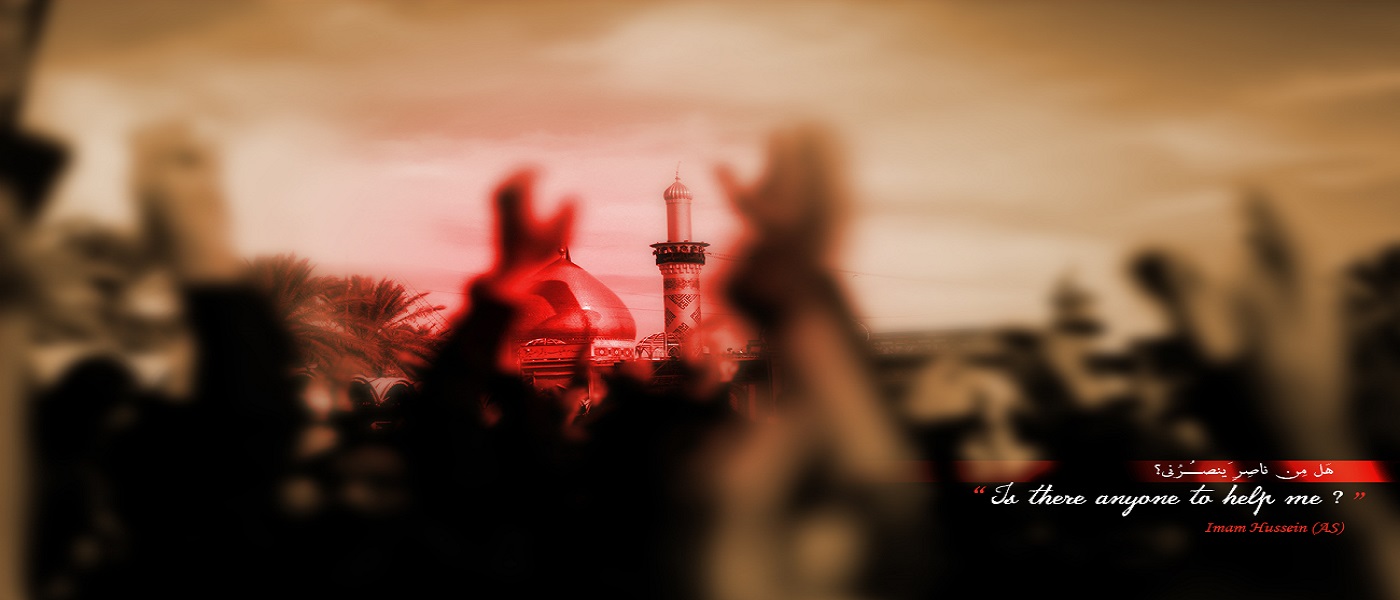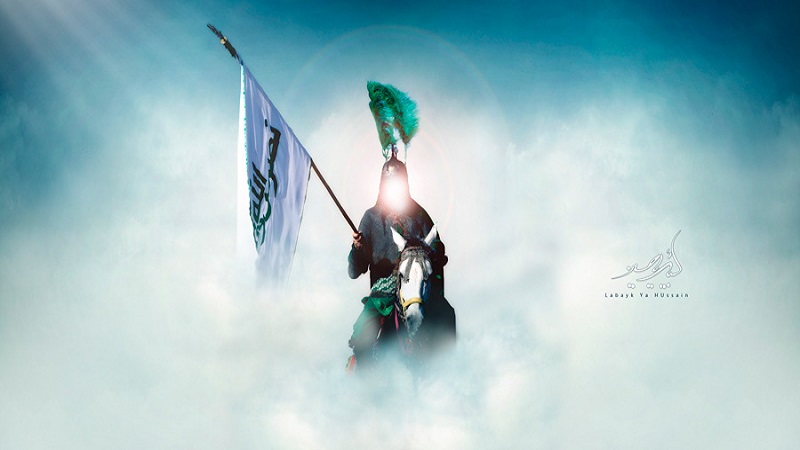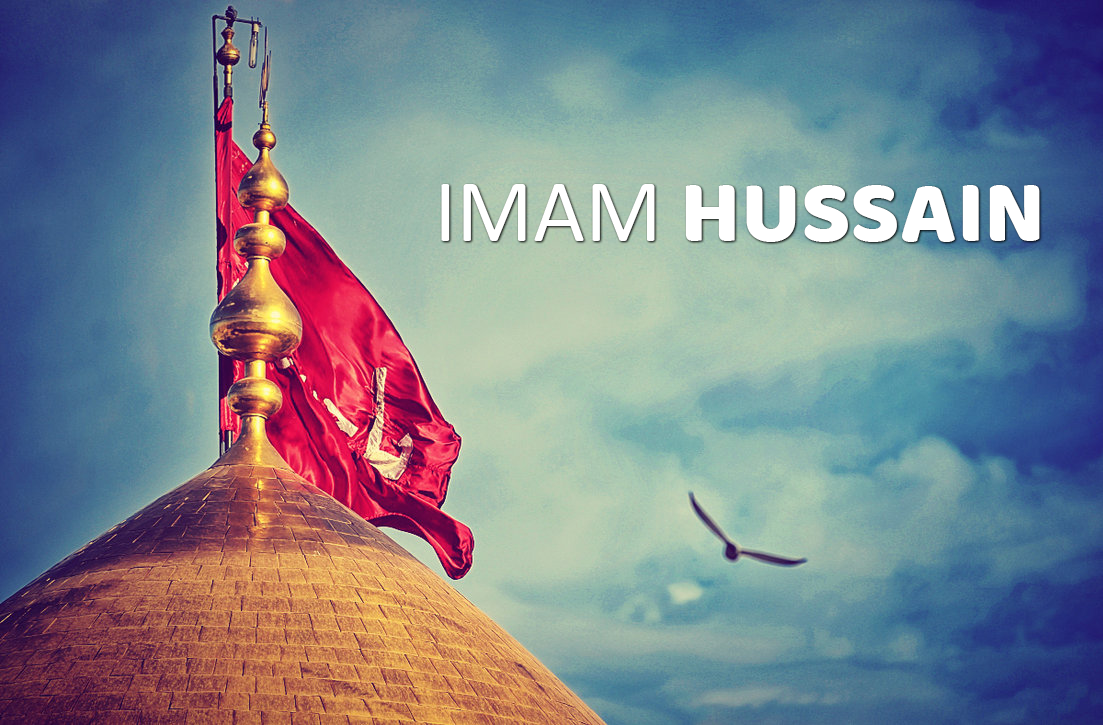

Democracy in the Light of Imam Hussain’s (AS) Movement
One of the questions that arises about Imam Hussain’s (AS) movement, which is of great importance especially in the modern days, is whether he desired to form an Islamic community, and if so whether the people willingly wanted to accept his leadership or not. In other words, did Imam Hussain (AS) actually want to rule over the Islamic community? Did he seek power? Did people join Imam Hussain (AS) of their own free will or they were forced, enticed or threatened to do so? The answers will reveal the core message of Imam Hussain (AS)’s revolution for us today.
Did the Infallible Imams Long for Leadership?
To answer these questions, we should first find out what the idea of the infallible Imams (AS) was about power. If we carefully look at their lives, we will come to know that they did not struggle for power nor did they have a craving to attain it. At the same time, though, whenever there was a public demand to govern over people, they did not refuse that request. Power or governing a community in the infallible Imams’ eye is nothing but a duty to serve people, protect their rights and bring justice among them.

They considered power as the means of reviving and expanding the divine goals and principles and preserving the moral values. So having political power was not of inherent value to them. You can see the proof in the following account:
“This world of yours is no better than the sneezing of a goat to me.”
After the death of the third caliph, Uthman, the crowd of people rushed to Imam Ali (AS) and asked him to take up the reins of government. But Imam Ali (AS) replied: “It is better for me to be your vizier and advisor rather than a ruler… leave me and go to others” [1]. In fact, if it was not for the sake of justice and people’s frustration and call for help, Imam Ali (AS) would have never accepted to be the ruler, as he said: “In my view this world of yours is no better than the sneezing of a goat” [2].
Or in another occasion, he said to one of his companions that his worn-out patched shoes were dearer to him than ruling over people unless for the fact that he may establish right and ward off wrong [2].
Imam Hussain’s (AS) Attitude toward Leadership (Political Power)
Imam Hussain (AS) had the same attitude toward power as his father. He did not seek a leadership role unless for the sake of eliminating injustice and corruption from the community. And that’s why Imam Hussain did not take the oath of allegiance to Yazid, the ruthless caliph of that time.
Clearly, it is every individual’s duty to fight against oppression and injustice in society. In other words, standing against tyranny is a moral and virtuous act in itself that is not entirely dependent on the companionship of others. However, when it comes to the issue of gaining power or accepting people’s leadership to fight against tyranny, the morality and value of this uprising depend on whether the leader is merely seeking reformation, or he struggles to gain supremacy over people. Such arrogance in leadership, in the latter case, can be eliminated by the presence of people.
Democracy is a Two-Way Street
When people of Kufa heard Imam Hussain (AS) had not pledged allegiance to Yazid’s government, they got impressed and sent thousands of letters to Imam Hussain (AS) asking him to go there and serve as their leader to fight against the tyranny. He did not take their request for granted nor did he accept their invitation right away. Instead, he decided to send his representative, Muslim ibn Aqil, to them to confirm their loyalty. That’s because in Islam the relationship between people and the government is a two-way street. On one way is the voting public -those who decide who becomes their leader and have to be loyal to him- and on the other path is the government, who also needs to be loyal to people and care about their well-being. And this is one of the important aspects of democracy in its true sense of the word.
Here another aspect of Imam Hussain’s (AS) movement is revealed which is beyond the mere fight against oppression: the necessity which made Imam Hussain (AS) decide to take power, i.e., people’s will and invitation.
Imam Hussain (AS) Accepted People’s Request
Imam Hussain (AS) thought it was necessary to accept the people’s leadership because they had asked him to do so.
If Imam Hussain (AS) had sought supremacy, he would have accepted people’s leadership at any cost. But he fulfilled what God told him in the Holy Quran:
“Do not be like those who left their homes vainly and to show off to the people, and to bar [other people] from the way of Allah” (8:47)
He also said: “Indeed, I have not risen to make mischief, neither as an adventurer nor to cause corruption and tyranny. I have risen solely to seek the reform of the Ummah of my grandfather (PBUH&HP)” [2].
He expressed it manifestly in his speeches that he would accept people’s leadership only if the elites of the community were all agreed on that invitation. He repeated it once again when he was faced with Hur’s army on his way to Kufa and emphasized that the people of Kufa had invited him by sending thousands of letters and requested him to take over the affairs. He explicitly stated that if the people of Kufa regretted their decision, he would return. He did not want to impose himself on people!

People Must Also Be Loyal to Their Leader
People of Kufa had invited Imam Hussain (AS), they had chosen him as their leader. But they were too weak to stand for what they had asked for. They were threatened and enticed by the tyrant governor of Kufa and could not keep their promise. Their hearts were with Imam Hussain (AS), but in practice, their swords were against him. They left Imam Hussain’s (AS) side and so the democracy they wished for was not materialized among them.
The Last Word
Finally, in the Islamic view of democracy, there has to be a balance between the rights and duties of both people and the rulers. Otherwise, there would be a disaster.
Many times in a democratic scene, there is a ruler who oppresses a lot of people. However, in the tragic story of Imam Hussain (AS), there is a group of people who choose and invite their leader, and promise to support him but go back on their pledge and fight against him, which ultimately resulted in the martyrdom of Imam Hussain (AS), one of the most righteous people on earth.
Reference:
- www.islamquest.net
- www.al-islam.org
Share This Article

Why is the Month of Ramadan Important for Muslims?
The month of Ramadan is one of the essential occasions in the Islamic calendar. It’s the month in which the Quran was revealed to Prophet Muhammad (PBUH&HP), it’s the month in which the most important nights of the Islamic year, the Qadr nights, or the nights of ordainment, are. It’s the month in which Prophet Muhammad (PBUH&HP) used to pray a lot. It’s the month in which practicing Muslims fast, keeping themselves from sins, evil acts, and their worldly desires. But why this month has a significant role in the Islamic calendar, and how does it play a role in the life of Muslims? Here, we are going to discuss this matter.
Ramadan is the month of Fasting and Prayer
Fasting is not a thing just belonging to Islam. It’s been in the former religions, and it’s been referred to in other holy books. The Quran refers to the time when Allah ordered Mary not to speak to anyone, as a form of fast:
Eat, drink, and be comforted. Then if you see any human, say, ‘‘Indeed I have vowed a fast to the All-beneficent, so I will not speak to any human today. (19:26)
“Muslims are asked to be fasting in the month of Ramadan: O you who have faith! Prescribed for you is fasting as it was prescribed for those who were before you, so that you may be God-wary.” (2:183)
Also, Allah promises a great reward for both men and women who fast:
“Indeed, the Muslim men and the Muslim women, the faithful men and the faithful women… the men who fast and the women who fast, the men who guard their private parts and the women who guard, the men who remember Allah greatly and the women who remember [Allah greatly]—Allah holds in store for them forgiveness and a great reward.”(33:35)
As a result, the month of Ramadan is when Muslims begin to have a close relation with Allah and practice preserving themselves from evil acts, temptations, human passions, etc. In response, Allah promises to reward those who do so, with the best rewards.
Ramadan is the Month of Granting Pardon
As Prophet Muhammad (PBUH&HP) said, “The Month of Ramadan starts with mercy, goes on with forgiveness and ends with redemption.” [1] Therefore, this month is a chance for Muslims to ponder on their deeds, find where they have gone wrong, and ask Allah’s help and forgiveness to fix those mistakes and become a better version of themselves. Allah’s mercy includes everyone, at any time and anywhere. Yet, the month of Ramadan is when He pours down His blessings upon His creatures more than ever and is an excellent opportunity for the ones who are willing to benefit from it.
Ramadan is the Month of Quran
Qadr Night or the Night of Ordainment is highly sacred in Islam. On 19th, 21st, 23rd or 27th of Ramadan, Allah inspired the holy Quran to Prophet Muhammad (PBUH&HP), and it refers to this fact:
Indeed We sent it down on the Night of Ordainment. And what will show you what is the Night of Ordainment? The Night of Ordainment is better than a thousand months. In it, the angels and the Spirit descend, by the leave of their Lord, with every command. It is peaceful until the rising of the dawn. (97:1-5)
So, one of the significances of this night is the inspiration of the Holy Quran to Prophet Muhammad (PBUH&HP).
The other significance of this night, according to the Imams (AS), is being known as the night of destiny. Imam Sadiq (AS) calls it the heart of Ramadan [2]. He also says that in the night of ordainment, everything, from death to life, is predestined. So Muslims usually stay awake during that night, praying to Allah to excuse their sins, and they pray for their earthly and unearthly wishes. That is the night in which Allah has said He does listen to the prayers of His servants. That is the night when one can change his/her fate for better, praying and asking Allah to do so.
The month of Ramadan is a chance for anyone who wants to be closer to Allah, a better person, and a guided human being. There are many divine purposes for this holy month, and especially the ritual of fasting, which will be discussed in another article.
References:
- Bihar al-Anwar, vol. 93, p.342.
- Bihar al Anvaar, vol 58, p 376.
Read More

Why we love Imam Hussain (AS) like the Prophet (PBUH&HP)
Life is a journey full of twists and turns. Without a guide in this deceptive path, one can become lost, forfeiting something that cannot be regained - the precious gift of redemption. That is why Islam emphasizes the need for Muslims to never be without a leader. Prophet Mohammad (PBUH&HP) is the best example of a Muslim within Islam.
There has certainly been for you in the Messenger of Allah an excellent pattern for anyone whose hope is in Allah and the Last Day and [who] remembers Allah often. (The Holy Quran 33:21)
O you who have faith! Obey Allah and His Apostle, and do not turn away from him while you hear [him]. (The Holy Quran 8:20)
These Quranic verses firmly establish that no one surpasses Prophet (PBUH&HP) as the ideal role model, guiding us to emulate his actions and lifestyle for our salvation. When we follow someone as a model in our life, we inherently respect his beliefs and ideas.
From this, we deduce that if our model is devoted to Islam, religion, and the path of Allah's pleasure, we will also try to align ourselves with that path and potentially attain spiritual ascension. Our model here is not an ordinary person but our dear Prophet. Therefore, there is no disputing the goodwill of this revered figure. An important thing that we must learn from the Prophet (PBUH&HP) as the supreme model for Muslims is to know whom to love and whom to dislike.
The question is: how does understanding Prophet’s feelings towards individuals would help us?
The answer lies in this: “By following the Prophet as an example, we can accurately discern these people, subsequently progressing toward Allah’s satisfaction and eternal happiness.”
Two figures whom the Prophet constantly favored were Imam Hassan and Imam Hussein (as). Imam Hussein (AS) was born on the third of Sha'ban in the fourth year of AH.
Since the great Prophet passing in the tenth year of AH, Imam Hassan and Imam Hussein (AS) spent their childhood with their dear grandfather.
Before delving further, let us know more about our third Imam. Imam Hussein (as) is also called Aba-Abdillah and Sayyid al-Shuhada among the Shias. He is the third Imam for the Shias, martyred in the course of Ashura. He is the second child of Imam Ali (AS) and Fatemeh Zahra (AS), and the grandson of Prophet Mohammad (PBUH&HP). Following his brother Imam Hassan’s (AS) leadership, he took charge of leading the Shias for ten years. Both Shia and Sunni historical records confirm that the Prophet of Islam (PBUH&HP) announced his martyrdom at his birth and chose the name "Hussein" for him. (1)
The Prophet held deep affection for Imam Hassan and Imam Hussein and recommended everyone to love them. Imam Hussein (AS) is one of the of Prophet’s Ahl al-Bayt and also one of the recipients of the verse of purification*.
Numerous narrations from Prophet Mohammad (PBUH&HP) extol Imam Hussain’s virtue. A famous narration quotes the Prophet (PBUH&HP) on Imam Hussain (AS): “Hussain is from me and I am from Hussain. Allah loves who loves Hussain.” (2)
Through this narration, the Holy Prophet (PBUH&HP) show other Muslims the sacred position of Imam Hussein (PBUH) and imparts the exceptional stature of this lineage. In an era where falsehood and hypocrisy infiltrate the Muslim community, this saying compels believers to rid themselves of hypocrisy and misguidance.
Regrettably, despite its resonance, this profound message did not deter the brutal martyrdom of Sayyid al-Shuhada (PBUH), which transpired in the Karbala before thousands of seemingly Muslim individuals.
The Prophet’s (PBUH&HP) adoration for Imam Hussein (AS) served a dual purpose: it conveyed not only his love for his grandson, but also aimed to engender affection towards Imam Hussein as the Imam of the Ummah, rallying people to follow him. Therefore, the Holy Prophet of Islam consistently introduced the Imam Ali, Fatima Zahra, Imam Hassan and Imam Hussein (AS) as his family and Ahl al-Bayt. He equated them with the Quran on numerous occasions, underscoring the necessity for Muslims to accept their leadership and guidance for spiritual elevation. The Prophet also said this in the hadith of the thaqalayn:
"Indeed, I am leaving two things among you, to which if you hold yourself, you will never astray: the book of Allah –who is almighty and great- and my Ahl al-Bayt (household), my 'itra (family). O people hear! And I have announced to you that indeed you will enter my presence and I will ask you about what you did to the thaqalayn (two weighty things) and the thaqalayn are the book of Allah and my Ahl al-Bayt."(3)
Conclusion:
These narrations illuminate Imam Hussein’s (AS) lofty status in the the Prophet’s (PBUH&HP)eyes and the Prophet’s responses to him serves as a guide. Not only are Muslims, as followers of the Holy Prophet, must praise and love Imam Hussein, but we must also adopt his behavior, thoughts, and ethics, and follow his path in our lives. Furthermore, the Prophet's interactions with Imam Hussein underscore that those who harbor hostility or animosity towards him today are not true Muslims. This group should not be regarded as part of the Prophet’s (PBUH&HP) religion.
References:
- Al‑Irshad (2nd Volume - page 130)
- Sunan al-Termizi (6th volume – number 3775)
- Al-Kafi (1st Volume – page 452)
----------------------
*The Verse of Purification is the 33rd verse of Al-Aḥzāb in the Quran (33:33). The verse has special importance for Shia Muslims due to giving information about Ahl al-Bayt of Prophet Muhammad (PBUH&HP). Shias reportedly believe it to designate the "Ahl al-Bayt" being infallible.
Read More

